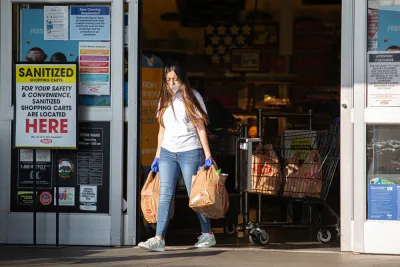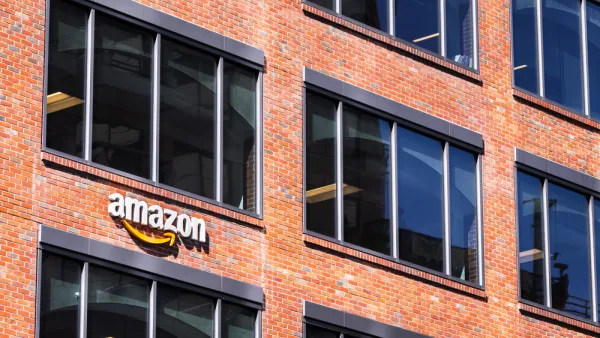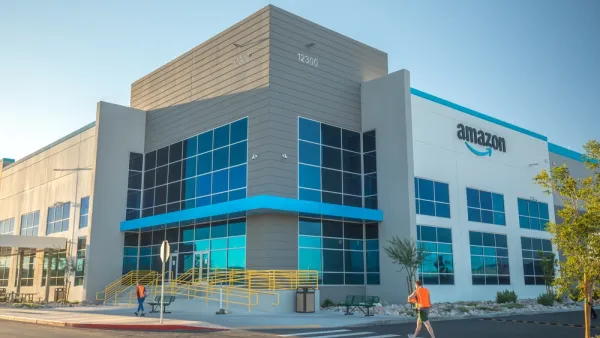New start-ups are promising ultra-fast delivery, but at a high cost to workers, the environment, and the urban fabric.

A new service that promises 15-minute grocery delivery at no additional cost "is the logical endpoint of a delivery-speed arms race that began 15 years ago when Amazon Prime guaranteed two-day delivery for millions of items," writes Aaron Gordon. Founder Ralf Wenzel "says Jokr offers a more sustainable approach to food waste than the current grocery industry’s status quo, and that certain ideas about how to improve the efficiency of grocery delivery will allow the company to thrive."
Aside from concerns about exploitative labor practices, experts question the benefits to consumers of such rapid-delivery services. "These companies operate only in dense urban neighborhoods where a grocery store is rarely more than a 10-minute walk away." For Gordon, promises of near-instant gratification speak to the "dreams of a certain kind of urban dweller" who sees "every spontaneous public interaction is an inefficiency to be solved."
Gordon points to dockless bike share that failed to make a profit and left cities littered with defunct bikes, food delivery services that "have thrown the restaurant industry into peril," and ride-hailing services that have increased congestion and carbon emissions as other industries that "popped out of nowhere" thanks to venture capital funds and created economic and societal problems. Already, one of these companies, Gorillas, is struggling to reconcile the ultra-fast delivery dream with decent working conditions. The startup is facing worker unrest in Europe as delivery workers organize thanks to grueling delivery schedules and safety concerns.
Urban planning professor David King argues that "this idea of everything being delivered makes the city much more transitory, because we're not experiencing the city, we're not getting out." To King, "these 15-minute services are missing something important about what cities are and why people like living in them." The goal of city life for most people, he argues, is not "optimizing and efficiency." Moving about the city is an essential part of living in one. As King puts it, "interesting things happen when you leave the house."
FULL STORY: What’s the Point of 15-Minute Grocery Delivery?

Analysis: Cybertruck Fatality Rate Far Exceeds That of Ford Pinto
The Tesla Cybertruck was recalled seven times last year.

National Parks Layoffs Will Cause Communities to Lose Billions
Thousands of essential park workers were laid off this week, just before the busy spring break season.

Retro-silient?: America’s First “Eco-burb,” The Woodlands Turns 50
A master-planned community north of Houston offers lessons on green infrastructure and resilient design, but falls short of its founder’s lofty affordability and walkability goals.

Test News Post 1
This is a summary

Analysis: Cybertruck Fatality Rate Far Exceeds That of Ford Pinto
The Tesla Cybertruck was recalled seven times last year.

Test News Headline 46
Test for the image on the front page.
Urban Design for Planners 1: Software Tools
This six-course series explores essential urban design concepts using open source software and equips planners with the tools they need to participate fully in the urban design process.
Planning for Universal Design
Learn the tools for implementing Universal Design in planning regulations.
EMC Planning Group, Inc.
Planetizen
Planetizen
Mpact (formerly Rail~Volution)
Great Falls Development Authority, Inc.
HUDs Office of Policy Development and Research
NYU Wagner Graduate School of Public Service




























